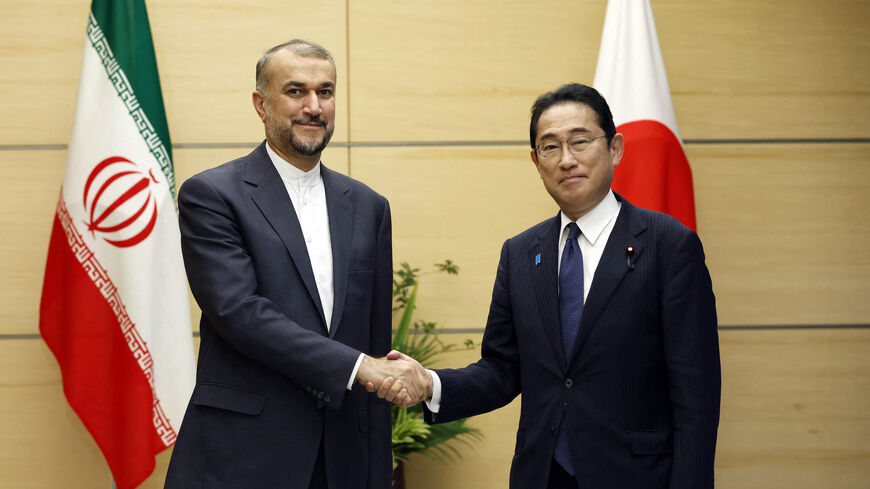Iran’s Foreign Minister Hossein Amir-Abdollahian met with his Japanese counterpart, Yoshimasa Hayashi, during a visit to Tokyo on Monday.
The two officials discussed the latest regional developments as well as bilateral ties and cooperation. According to a press release by the Japanese Foreign Ministry, the pair agreed to advance relations in various fields, including medical, environment and disaster risk reduction.
On the Iranian nuclear file, Hayashi expressed concerns over Iran’s growing nuclear activities, calling for its “full and unconditional cooperation” with the International Atomic Energy Agency, per the press release. For his part, Amir-Abdollahian vowed to advance dialogue with Japan on this issue.
The visit to Japan comes as the United States and the West are turning up pressure on Iran over its nuclear activities at a time when negotiations on a return to the 2015 nuclear deal — known as the Joint Comprehensive Plan of Action — remain frozen. Tensions are high in the region amid a US military deployment in the Persian Gulf that the Pentagon says is a move to deter Iran from attempting to seize commercial oil tankers in Gulf waterways. Meanwhile, Washington has repeatedly accused Tehran of sending drones and providing drone technology to Russia in its war on Ukraine, which Iran denies.
During Monday’s meeting, Hayashi stressed his country’s rejection of the Russian war on Ukraine and urged Iran “to respond in a constructive manner,” the Japanese Foreign Ministry said.
Amir-Abdollahian is scheduled to meet with Japan’s Prime Minister Fumio Kishida later on Monday. His visit to Japan is the first by a top Iranian diplomat since 2019, although the two diplomats have exchanged views in phone calls.
Relations between Iran and Japan have remained relatively good despite tensions between Tehran and Washington, Tokyo’s ally. For years, Japan relied on Iran for oil imports before suspending them in 2019 due to US sanctions on countries buying oil from the Islamic Republic. In 2018, Japan imported 46.51 million barrels from Iran, according to data from the Japanese Ministry of Economy, Trade and Industry.








